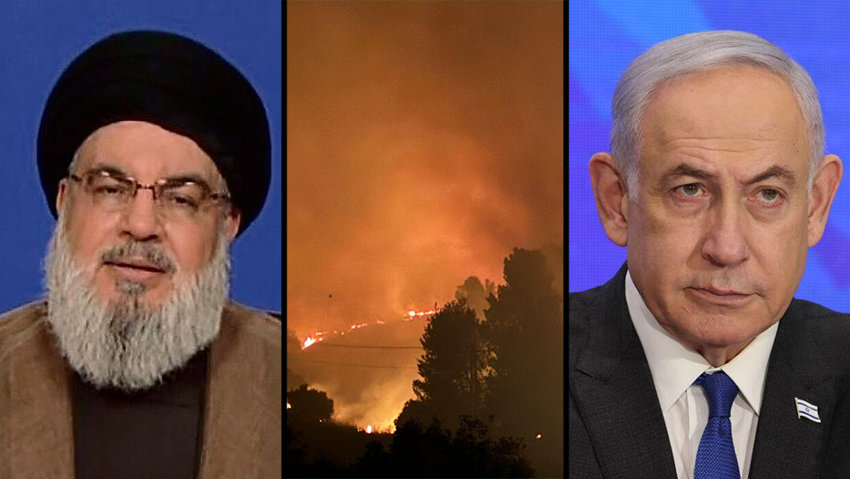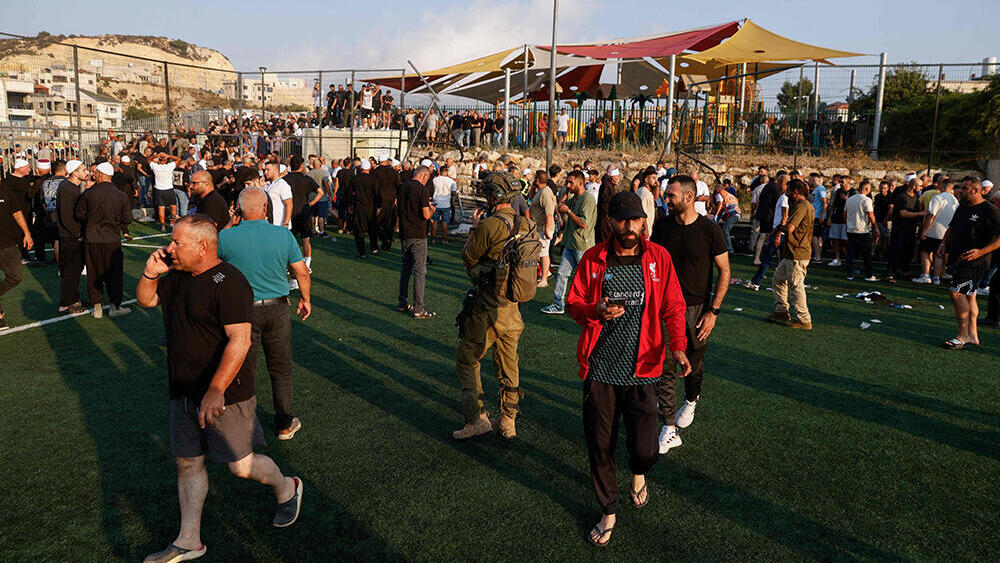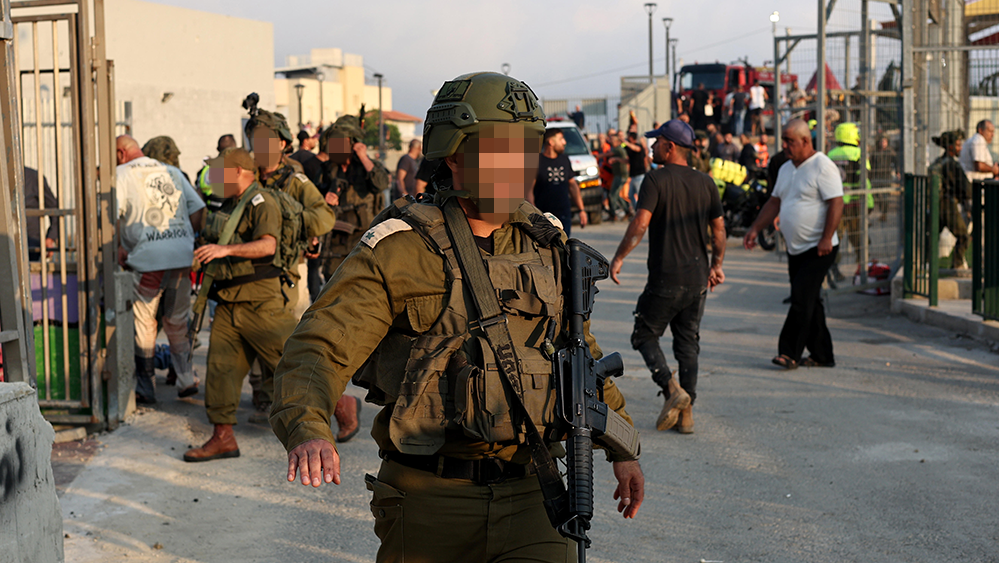Getting your Trinity Audio player ready...
In late July 2006, during the Second Lebanon War, the IDF attacked targets in the village of Qana and mistakenly killed dozens of civilians, including 21 children. This incident was, in many ways, the war’s turning point, as the U.S. government decided to pressure Israel to end it quickly following the civilian casualties.
The rocket strike in Majdal Shams, which also resulted in the deaths of children and teenagers, could have the opposite effect – it’s likely to escalate the war that’s been ongoing for nine months on the northern border at a relatively low profile and turn it into a much broader one. In fact, this tragic incident brings us closer to the brink of a full-scale confrontation between Hezbollah and Israel than any other day since October 7.
The rocket fired by Hezbollah that hit a soccer field in Majdal Shams is nothing less than a severe operational miscalculation by the Shiite terrorist organization. It can be said with high certainty that this wasn’t the intention of those who launched the rocket.
Majdal Shams is a Druze village, many of whose residents hold Syrian citizenship and consider themselves Syrians rather than Israeli citizens. Many Majdal Shams residents have relatives in Syria and Lebanon and Arab social networks, including Palestinian ones, have severely criticized Hezbollah, explicitly noting that the town isn’t Israeli or Jewish.
Furthermore, the hit on a playground where so many children were present, and the killing of eleven of them will likely intensify criticism in Lebanon and the Middle East against Hezbollah, which already faces considerable criticism at home and beyond, alleging it serves Iranian interests rather than Lebanese ones.
But Israel now finds itself facing a dilemma. Should it respond harshly, as logic seemingly dictates, against various Hezbollah targets – risking a full-scale war in the process – or should it show restraint given the situation in Gaza and the ongoing war?
3 View gallery


Hezbollah leader Hassan Nasrallah, fires in the Galilee, Prime Minister Benjamin Netanyahu
(Photo: Alex Kolomoisky)
An extensive attack on Hezbollah and Lebanese targets may sound necessary to many in Israel, but the cost of a full-scale escalation and its consequences must be considered as well. It is doubtful the IDF in its current state has the ability and means to achieve a swift victory in Lebanon, something that seems far off even in Gaza.
Entering a full-scale war in Lebanon will lead to a difficult war that will last for many months and will probably end in a cease-fire, despite empty slogans about "total victory." The Israeli home front will be under heavy and prolonged rocket fire every day, at every hour.
And again, all this while many of its resources, human and material, are dedicated to the war in Gaza, which Prime Minister Benjamin Netanyahu refuses to end or even reach a hostage release deal in exchange for a cease-fire.
There are quite a few politicians in Israel, including in the current government, who think there’s a quick-fix solution for this: to attack Lebanon and its infrastructure. This statement is unlikely to impress Hezbollah or its Iranian puppet masters, for whom the state of Lebanon will always be secondary to Hezbollah's Shiite interests.
In fact, destroying Lebanon and its infrastructure will greatly help create a growing dependency on the Islamic Republic and Hezbollah in post-war Lebanon.
Ultimately, even after the tragic incident in Majdal Shams, Israel needs to ask itself what it can achieve in a full-scale war in Lebanon. What will be the goal of such a war, is it attainable, and what’s Israel’s exit strategy, rather than only thinking about how it can be started?
 Avi IssacharoffPhoto: Yuval Chen
Avi IssacharoffPhoto: Yuval ChenWithout clear answers to these questions, a war in Lebanon will end in nothing but unthinkable destruction and many casualties on both sides.





